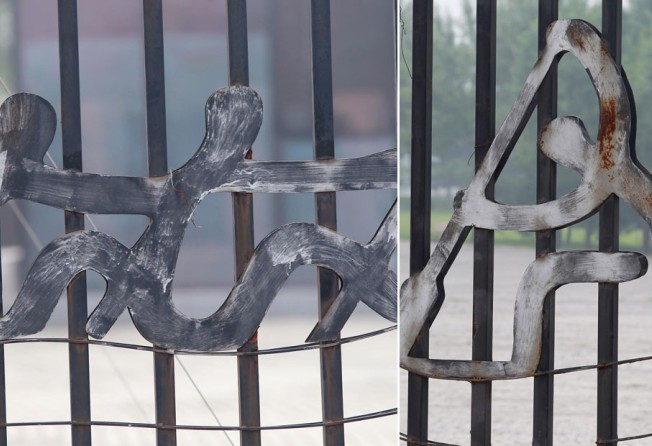New uses found for some Beijing Games venues

Tuesday was the last day of summer by the lunar calendar, and the hottest. More than 18 provinces issued extreme-heat warnings. Even overcast Beijing felt like a sauna as high temperatures and humidity took hold.
But inside the Shunyi Olympic Rowing-Canoeing Park, amateurs happily sweated through a televised variety show, competing in kayaking, canoeing, skiing and dragon-boat racing as friends and families cheered them on from lush and neatly trimmed lawns.
Not far away, a summer camp of primary and middle-school pupils were learning the basics of wakeboarding and jet-skiing from professional coaches, their screams and laughter louder than the loudspeakers of the variety show.
The park is one of more than 30 major sport facilities built for the Olympic Games in Beijing five years ago, and most of the time, the quietest.
Other Olympic venues, such as the "Bird's Nest" National Stadium and Water Cube aquatics centre were built in bustling urban centres.
Both, especially the "Bird's Nest" were dismissed as white elephants and have struggled to attract the kind of high-profile events needed to fill seats. But they have become landmarks and attract a steady stream of visitors. The water park is in Shunyi district, more than an hour's drive from downtown, without any densely populated communities nearby.
Nonetheless, the noise is growing. On weekends, thousands of families arrive in cars with picnic sets and tents so they can enjoy trees, lawns, water and relatively clean air. Sometimes parking can be stressful and roadsides filled with vehicles, according to farmers living nearby.
After the Games in 2008, there were concerns about whether these huge and costly sports facilities would crumble as they struggled to attract the events and crowds that would pay the bills. Authorities were never transparent on maintenance costs and at least one small stadium, the BMX track in Shijingshan, came close to being abandoned and was rented to a car company as a warehouse.
But the nation's huge population and rapidly growing economy has kept many facilities busy. The Water Cube, for instance, hosts Celebrity Splash, a diving-based reality television show that is one of the most viewed programmes on the mainland. The Olympic Green in Chaoyang district is packed with tourists and locals almost every weekend and so are the beach volleyball venues in Chaoyang park.
Business at some facilities was so good it attracted foreign investment. MasterCard acquired the Wukesong Arena in 2011 and renamed it the MasterCard Centre to host large-scale entertainment events, such as Hong Kong singer/actor Andy Lau Tak-wah's three-day concert last October.
Compared to facilities downtown, the Shunyi water park had a more difficult time.
Gao Jiadong , marketing director for the park's investment and development centre, said maintenance and operating costs for the park - which is more than 30 hectares and has two million cubic metres of water - were huge.
The lawn needs to be constantly trimmed and water regularly recycled. The park also has to cancel commercial activities when national team athletes train there.
In 2010, the park was warned by Beijing's tourism authorities that if the facility could not be kept clean and tidy, it would be removed from the directory of officially recommended tourism destinations.
In recent years, the situation has improved markedly. "By now we have almost broken even," Gao said.
Gao attributed the park's resurgence to the rapid economic development of Beijing, and in particular its local Shunyi district, also home to Beijing Capital International Airport.
Several banks and insurance companies decided to relocate their headquarters from downtown to areas around the park to escape pollution and traffic jams. China Minsheng Bank has already moved in and the Bank of Beijing will follow. The People's Insurance Company of China is also building its new base nearby.
Luxury real estate developments have sprung up near the park in recent years, targeting high-income financial and technology workers.
"The government's aspiration is to turn Shunyi into Beijing's mini-central business district," Gao said. "The park plays an important role in the blueprint of development because we provide a superb natural environment and many high-quality recreational facilities."
The park wanted to attract high-end visitors, Gao said. Expensive sports such as water-skiing were popular only with the rich. "Our speedboats are as good as those used in international races," he said.
"Due to our relatively remote location, we cannot attract as many visitors as other facilities downtown. But we can host privileged water games. Our cable skiing facility, for instance, is imported from Germany and the only one in China. "Only by aiming high can we survive and thrive."
Bu Li Xin, a farmer from Mapo village selling cold drinks at the park's entrance, said he had not benefited from the recent development. "I was actually better off five years ago," he said.
Li said the government took his land to build the park, but gave poor compensation.
"I get 1,500 yuan [HK$1,900] a year for the land loss, and nothing else," Li said. "I have never stepped inside to have a look at what became of my land because they charge 20 yuan for a ticket. I need to sell an entire case of bottled water for the money.
"The Olympic Games used to be the government's games. Now it is the rich people's games."